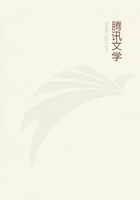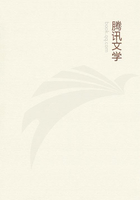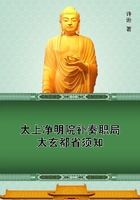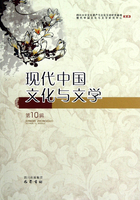But some fictions die hard. However low the family had sunk, so that in his own words, "his father's house was of that rank that is meanest and most despised of all the families in the land," "of a low and inconsiderable generation," the name, as we have seen, was one of long standing in Bunyan's native county, and had once taken far higher rank in it. And his parents, though poor, were evidently worthy people, of good repute among their village neighbours. Bunyan seems to be describing his own father and his wandering life when he speaks of "an honest poor labouring man, who, like Adam unparadised, had all the world to get his bread in, and was very careful to maintain his family." He and his wife were also careful with a higher care that their children should be properly educated. "Notwithstanding the meanness and inconsiderableness of my parents," writes Bunyan, "it pleased God to put it into their hearts to put me to school, to learn both to read and write." If we accept the evidence of the "Scriptural Poems," published for the first time twelve years after his death, the genuineness of which, though questioned by Dr. Brown, there seems no sufficient reason to doubt, the little education he had was "gained in a grammar school." This would have been that founded by Sir William Harpur in Queen Mary's reign in the neighbouring town of Bedford. Thither we may picture the little lad trudging day by day along the mile and a half of footpath and road from his father's cottage by the brookside, often, no doubt, wet and miry enough, not, as he says, to "go to school to Aristotle or Plato," but to be taught "according to the rate of other poor men's children." The Bedford school-master about this time, William Barnes by name, was a negligent sot, charged with "night-walking" and haunting "taverns and alehouses," and other evil practices, as well as with treating the poor boys "when present"with a cruelty which must have made them wish that his absences, long as they were, had been more protracted. Whether this man was his master or no, it was little that Bunyan learnt at school, and that little he confesses with shame he soon lost "almost utterly."He was before long called home to help his father at the Harrowden forge, where he says he was "brought up in a very mean condition among a company of poor countrymen." Here, with but little to elevate or refine his character, the boy contracted many bad habits, and grew up what Coleridge somewhat too strongly calls "a bitter blackguard." According to his own remorseful confession, he was "filled with all unrighteousness," having "from a child" in his "tender years," "but few equals both for cursing, swearing, lying and blaspheming the holy name of God." Sins of this kind he declares became "a second nature to him;" he "delighted in all transgression against the law of God," and as he advanced in his teens he became a "notorious sinbreeder," the "very ringleader," he says, of the village lads "in all manner of vice and ungodliness."But the unsparing condemnation passed by Bunyan, after his conversion, on his former self, must not mislead us into supposing him ever, either as boy or man, to have lived a vicious life. "The wickedness of the tinker," writes Southey, "has been greatly overrated, and it is taking the language of self-accusation too literally to pronounce of John Bunyan that he was at any time depraved." The justice of this verdict of acquittal is fully accepted by Coleridge. "Bunyan," he says, "was never in our received sense of the word 'wicked.' He was chaste, sober, and honest." He hints at youthful escapades, such, perhaps, as orchard-robbing, or when a little older, poaching, and the like, which might have brought him under "the stroke of the laws," and put him to "open shame before the face of the world." But he confesses to no crime or profligate habit. We have no reason to suppose that he was ever drunk, and we have his own most solemn declaration that he was never guilty of an act of unchastity. "In our days," to quote Mr. Froude, "a rough tinker who could say as much for himself after he had grown to manhood, would be regarded as a model of self-restraint. If in Bedford and the neighbourhood there was no young man more vicious than Bunyan, the moral standard of an English town in the seventeenth century must have been higher than believers in progress will be pleased to allow." How then, it may be asked, are we to explain the passionate language in which he expresses his self-abhorrence, which would hardly seem exaggerated in the mouth of the most profligate and licentious? We are confident that Bunyan meant what he said. So intensely honest a nature could not allow his words to go beyond his convictions.
When he speaks of "letting loose the reins to his lusts," and sinning "with the greatest delight and ease," we know that however exaggerated they may appear to us, his expressions did not seem to him overstrained. Dr. Johnson marvelled that St. Paul could call himself "the chief of sinners," and expressed a doubt whether he did so honestly. But a highly-strung spiritual nature like that of the apostle, when suddenly called into exercise after a period of carelessness, takes a very different estimate of sin from that of the world, even the decent moral world, in general. It realizes its own offences, venial as they appear to others, as sins against infinite love - a love unto death - and in the light of the sacrifice on Calvary, recognizes the heinousness of its guilt, and while it doubts not, marvels that it can be pardoned. The sinfulness of sin - more especially their own sin - is the intensest of all possible realities to them. No language is too strong to describe it. We may not unreasonably ask whether this estimate, however exaggerated it may appear to those who are strangers to these spiritual experiences, is altogether a mistaken one?














